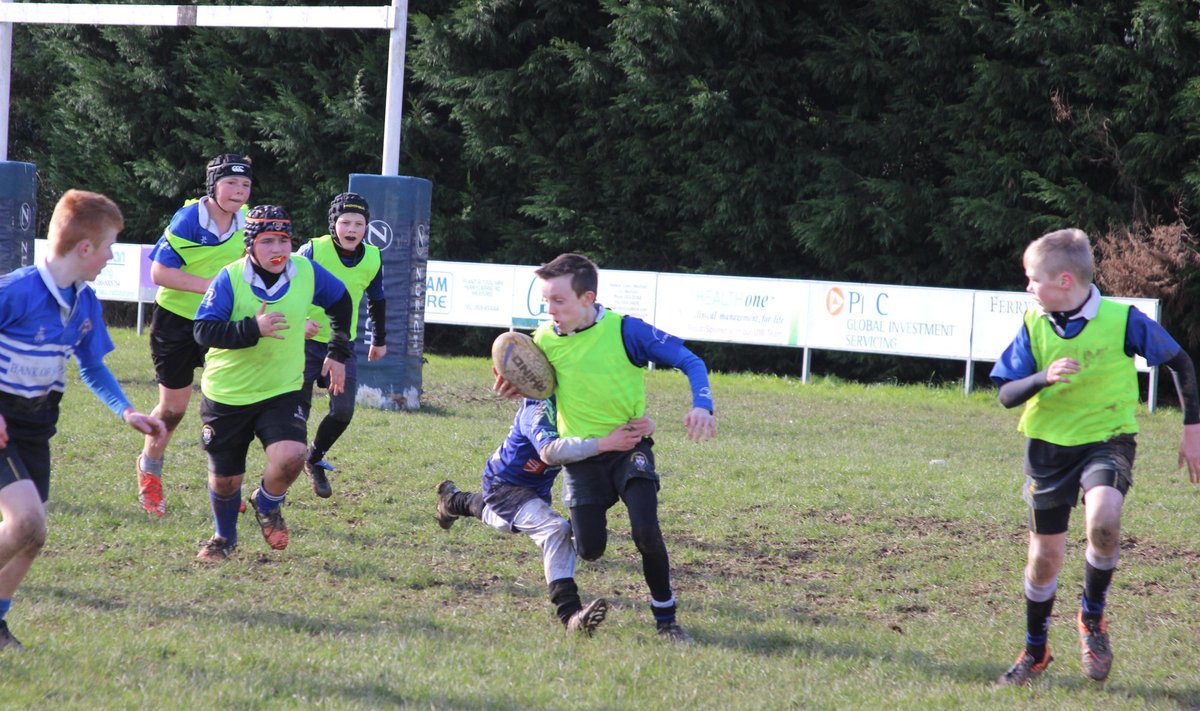The Lithuanian kids under 12 won not once, but twice against better and stronger teams. “The spirit and the excitement brought us these victories,” said Donatas Streckis, the head coach of the club. In the first match, the Lithuanians won with a score of 20-30 while the second match finished with a score of 35-45 to Klaipėdos Kovas.
Almost without governmental support, Streckis managed to build a high-level rugby club. But if the club and Lithuanian rugby in general want to continue to grow and to play at the same level as the world's top rugby nations, junior clubs is the secret. Streckis's junior club is one of the strongest in Lithuania, thanks not just to the young players' dedication to the game, but also the fact that there are precious few other junior clubs to compete for talent.
Streckis, conscious of the importance of developing and investing in the young generation of players, decided to do all it took in order to take his young team on a trip to one of the top rugby nations, Ireland.
The Klaipėda boys, aged between nine and twelve, played against Irish junior teams from the cities of Waterford and Wexford. The young Lithuanians surprised not only their hosts, but also their coach.
“I was surprised by the game style that the kids played. They managed to do great low catches and prevented a tactical move from their rivals. It was fantastic,” said Streckis and added that “the team that came to Ireland was not our best. The goal of this training camp was to give some experience to our players. To be honest, I just hoped that the kids wouldn't lose very badly. In the end, the opposite happened.”
Preparations for the training camp in Ireland had started about six months before, by both the Lithuanian and Irish clubs. Finance was the main issue and Streckis had to raise the funds himself. “A lot of people helped us organize it. Some of the required sum came from Ireland, some came from other donations, our sponsor gave us as much as he could, I took also some cash from the club's coffers, but the main contributors were the parents raised most of the sum,” explained Streckis.
The Lithuanians were hosted by the families of local players in both cities. This helped start new friendships and build plans for future matches between clubs in Lithuania and in Ireland. “We have invited them to come to Lithuania and we will host them this time. I hope that it will happened soon,” said Streckis.
The kids were aware of the plans for the trip until almost the last day, as Streckis organized everything with their parents. Many of the young players got the news about their trip to Ireland on Christmas morning.
“Besides the regular gifts from friends and family, they found a letter from Klaipėdos Kovas. They thought that it was a regular greeting card, but when they opened it and found out that they were going to a training camp in Ireland, they were shocked. Some of them even cried from excitement. I guess that they will never forget this Christmas,” explains Streckis.
Beside gaining experience of the game, the Lithuanian kids learned about Ireland, its culture and traditions, travelled in the country, visited several professional rugby stadiums, spent time with their new friends. They returned home with loads of stories, good humour and souvenirs from Ireland.
